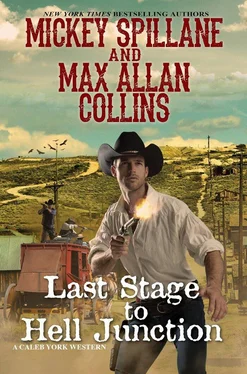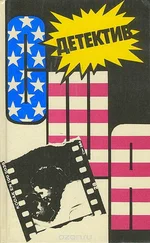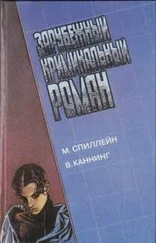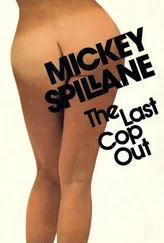York, 44 in hand, slowly entered the small foyer. A box-office booth, its gilded cage festooned with spiderwebs, was to the right. Staying close to the wall, York crept over there, to see if Hargrave or the woman might be within, waiting to jack-in-the-box up and hand him, on the house, a ticket to hell.
But no.
The space within was empty, home only to more spiders and their webs.
The two inner doors were also wedged open. Hargrave was staging the production with some care, considering the lack of time available. York stepped inside, under a balcony’s overhang. The chamber seemed vast, though the structure itself was not elaborate, just a wooden husk whose red and gold decorative paint was blistered where it wasn’t gone. Several box seats on either side overlooked the stage, whose frayed curtains, open to expose an empty, dusty proscenium, seemed to be hanging on for dear life.
No seats in this theater. Likely the space had been used for dances as well as plays and musical events, so folding chairs that could be cleared when necessary had provided seating. What had become of them was lost to the ages, as if anyone cared.
York stepped out from under the balcony, listening for any sign of either of them. Glanced up there and saw nothing. Perhaps they had led him here in order to come up on him from behind. But he heard nothing.
Then came applause — the sound of one person clapping.
It rang through the high-ceilinged room, echoing, as if it were announcing the star of this performance.
Which it was.
Blaine Hargrave, in his customary black, stepped from the wings and kept clapping till he reached center stage. His jacket was back to reveal the revolver on his hip, low and tied-down. Was that the show the outlaw planned? To shoot it out with his Brutus?
“It’s what I get,” Hargrave said, his voice carrying without trying too hard, “for wearing my heart on my sleeve.”
“More like hoist on your own petard.”
Hargrave gestured with his left hand, perhaps realizing a movement of his right, near his weapon, could get him killed. He said, “ ‘The fault, dear Brutus, is not in our stars...’”
“That’s enough of this bull,” York said. “Unbuckle that gun belt and let it drop. I’m taking you to Trinidad. Your next performance is in front of the circuit judge. Anything clever or Shakespearean to say about that?”
The actor, alone on his stage, shook his head. “No. I prefer to save my farewell speech for the gallows.”
Some particles of dirt drifted down and landed on York’s shoulder. He hurled himself out onto the dusty floor, looking up to see just who he expected: Juanita — at the rail of the balcony, with a revolver in her hand and hatred on her pretty face. She was trying to draw a bead on York when he shot her, the angle of the bullet starting under a cheek and traveling out the top of the back of her head, a spray of red blossoming like a beautiful, terrible flower that wilted at once.
The shot took her backward and she slipped out of sight just as she slipped out of life. The scream from the stage told York that he best roll to one side and face that direction. There he saw Hargrave leaping, revolver in hand, handsome face contorted into agonized ugliness, jumping from the stage much as he’d done when that heckler taunted him and sent him down a torturous path that was ending here.
Hargrave was still in the air when York’s bullet lanced through him, in the chest, and when he hit the floor, it was with no grace at all.
The gun had fled the actor’s fingers, but even if it hadn’t, the man was so close to death that when York approached him, no danger awaited. The lawman knelt over the outlaw.
Hargrave, sprawled on his back, was smiling. At first York thought the man was looking at him, but no — the actor was looking through York.
Then the dying man said, weakly but with perfect enunciation despite a bubbling mouthful of blood, “ ‘Juliet, I will lie with thee tonight.’ ”
York stood, wondering if that was from the balcony scene.
Sure seemed like it should have been.
Gun in hand, not sure of what or who he’d find, York checked the hotel, top to bottom, though as far as he knew those presenting any real problem were nicely deceased. But he was in particular looking to see what had become of the Wileys, who were surely still breathing.
Their well-appointed living quarters, in which York had previously not set foot, evidenced signs of a quick departure — dresser drawers open and empty or nearly so, a wardrobe with perhaps a third of the clothing missing and the rest in disarray. It would seem they had used the melee to provide cover for a back-door escape.
That made sense, as now that the sheriff of Trinidad County knew of the Hell Junction Inn’s existence, its value to the outlaw world would be nil. York had already determined to shut the place down.
The colored servant, Mahalia, he found in her room off the kitchen, where she sat on the edge of the cot, looking entirely self-composed. She was neatly dressed in a dark blue calico winter day dress that must have been what she wore to church.
Maybe that was why York instinctively took off his hat when he spoke to her. “Are you all right, miss?”
“You a lawman.”
“I am.”
“You gon’ take me to the pokey?”
He went over and sat next to her, his hat in his hands and in his lap. His smile was gentle. “I’d sooner throw you a dinner in your honor at a real hotel,” he said.
“I killed a man.”
“Not much of one. You saved my life.”
Her eyes were big and dark and locking on his. “You saved me last night.”
That embarrassed him. “Do you have something you could gather your things in?”
“Pillow case?”
“The Wileys seem to have vacated their quarters.”
“I heard them scurry. Thought they might collect me. They didn’t.”
“Why don’t you go over to their quarters and see if they left behind a carpetbag or such? If they did, fill it and come out front and wait.”
She nodded. He patted her shoulder, and went out.
The hotel was otherwise empty. He collected his own things, including his saddlebags, then walked over to the livery. He noticed two horses that had been stabled there were gone — probably the Wileys’ own animals. But two of four horses that had been the outlaws’, hitched in front of the hotel, were also gone. The couple had likely commandeered them as pack animals to take as many of their belongings as they could quickly assemble.
However you cut it, the innkeepers had skedaddled — guests who were running out on their bill. York didn’t much care. He’d put a stop to their business of providing a hideout with clean sheets and indoor privies for the likes of the Hargrave bunch, and that was good enough for him.
Tulley’s mule, Gert, had a stall. So that made four animals to lead back to Trinidad. If that servant girl could drive a buckboard, he could ride along on his gelding with Gert behind him and two horses behind the wagon. That would spare him a trip back to this place. He would see.
For now the hardest part of this damn day lay ahead: gathering the dead. He could have left them to feed the critters and take their own good time turning to skeletons. But he felt he owed it to the men he’d killed — and the woman — to haul them back to civilization.
Anyway, he was pretty sure he had wanted posters on Bemis and the Randabaughs, and there were places outside the territory where Hargrave was worth at least a thousand, dead or alive. Corpses could be shipped, after all. Worth a try. A sheriff depended on such rewards to supplement his somewhat meager pay.
And so Caleb York began dragging the bodies from where they fell, the blood fresh enough to leave snail-like trails. He reunited the Hargrave gang, piling the bodies like cordwood in the back of the buckboard, having to stack Hargrave himself on top of Clutter’s wicker coffin, which crunched some from that.
Читать дальше





![Микки Спиллейн - Death of the Too-Cute Prostitute [= Man Alone]](/books/437201/mikki-spillejn-death-of-the-too-thumb.webp)